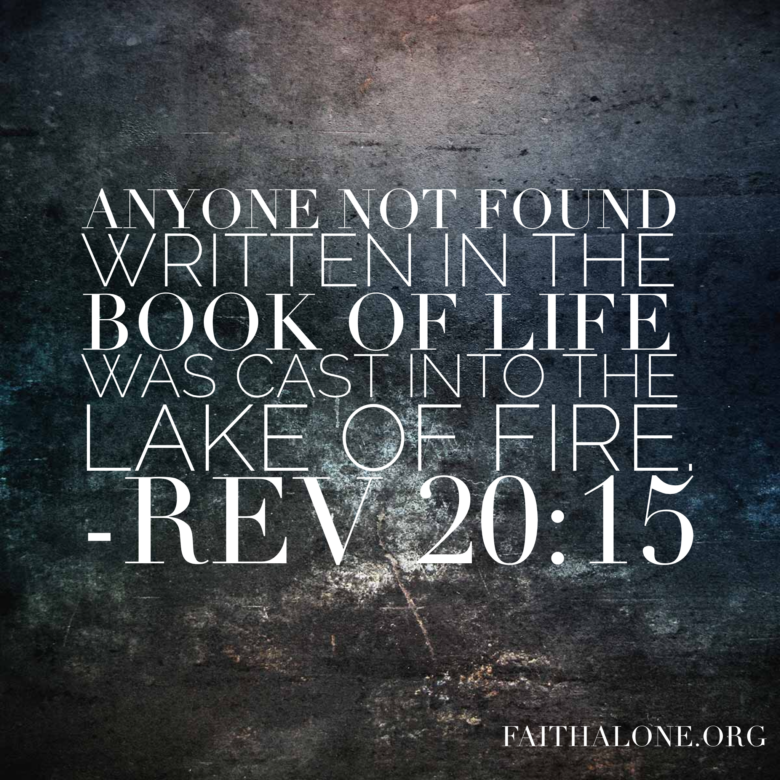by Zane Hodges
In John’s well-known description of the Final Judgment in Revelation 20:11-14, we do not even find a reference to sins, much less a reference to unforgiven sins. Instead, we are told, “the dead were judged acording to theirworks, by the things which were written in the books” (Rev 20:12; italics added). To be sure, the works of unsaved people contain innumerable sins, but it is still significant that sin per se is not referred to, as we will point out in a moment.
Yet even though unsaved people are judged on the basis of their works,they are not condemned to hell on that basis! On the contrary we read, “Anyone not found written in the Book of Life was cast into the lake of fire” (Rev 20:15; italics added). People go to hell, therefore, because they do not have life!
This is precisely what we might have concluded from the theme statement of the Fourth Gospel: “but these are written that you may believe that Jesus is the Christ, the Son of God, and that believing you may have life in His name” (John 20:31; italics added). It is also evident in John 5:24 where our Lord states that the believer “shall not come into judgment, but has passed from death into life” (italics added). We conclude, therefore, that the possession oflife is the critical issue between God and man in terms of eternal judgment. There is no Final Judgment to determine one’s eternal destiny if he already possesses life.
But sin is not the critical issue. Why not? John’s own writings tell us why. According to John, Jesus is “the Lamb of God who takes away the sin of the world” (John 1:29); and “He Himself is the propitiation for our sins, and not for ours only but also for the whole world” (1 John 2:2). The hymn writer was correct when he said that “Jesus paid it all”!
So marvelously complete and full is the sacrificial death of Christ for our sins that God’s justice is satisfied by that sacrifice and no man is condemned to hell on the grounds of his sins. But by the same token, the cross of Christ does not automatically regenerate men and women. They still need to obtainlife and this is available to them on one basis only: faith in Christ.
But then, one might ask, why do men’s works come up at all? The reason must surely be that at the Final Judgment mankind will get a full and fair hearing. Since multitudes have supposed that they can reach heaven by their works, these works will be examined on that day. But as Scripture already informs us, no man can be saved by his works (Eph 2:8-9; Titus 3:5; Rom 3:20).
The outcome of the final examination of the works of the lost is a foregone conclusion. Any claim to God’s salvation that is based on the deeds a person has done will be swept away by the contents of the books that are opened at the judgment. Man’s one last hope will rest in the Book of Life, which will be duly consulted even though those being judged do not have their names written there. But the absence of their names from its pages is the basis on which the lost are cast into the lake of fire.
Thus one can see that the issue at the Final Judgment is not man’s sin, since Christ has atoned for that in its entirety. Instead, the issue is whether someone can make it into the kingdom of God on the basis of the works they did on earth, apart from the miracle of new birth that comes by faith alone. But as the Lord Jesus informed Nicodemus, “Most assuredly, I say to you, unless one is born again, he cannot see the kingdom of God” (John 3:3).
This article is excerpted from Harmony With God by Zane Hodges

